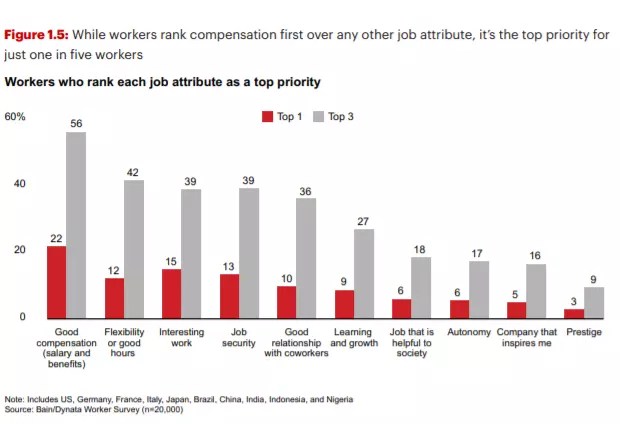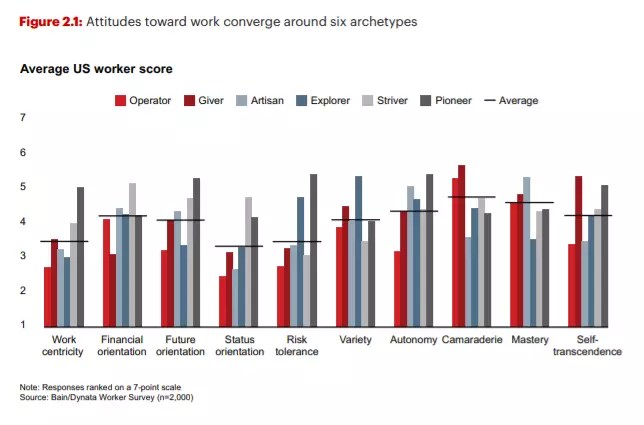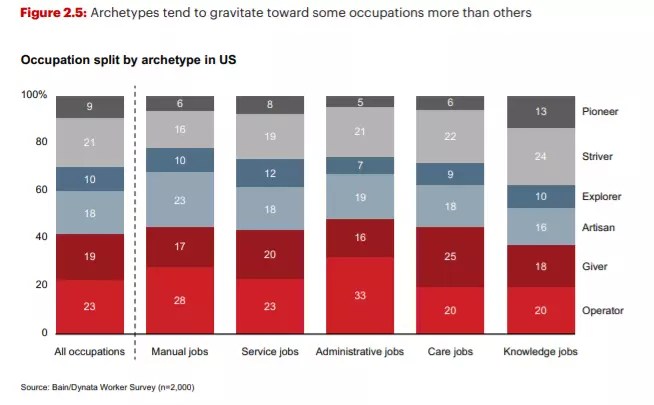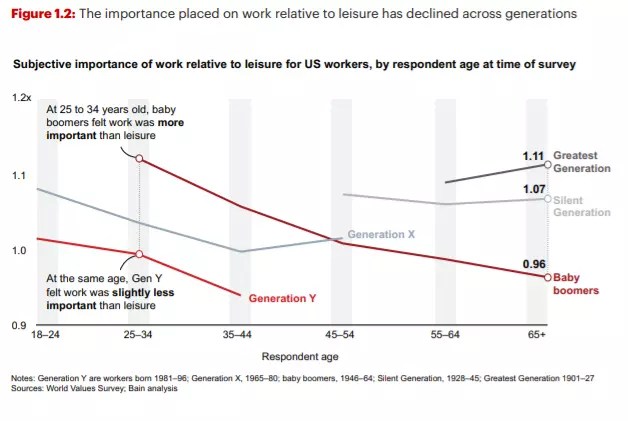There are six types of worker, this study says. Which one are you?

Choose a job you love, and you’ll never have to work a day in your life, or so the saying goes.
But the reality for many people is that they feel shoehorned into roles that don’t make the best use of their skills or interests.
Management consultancy Bain & Company has identified six worker profiles that it believes can help businesses and their employees better understand different motivations and the roles most suited to various personality types.
The research is based on a survey of 20,000 workers and could help companies dealing with high staff turnover and difficulties recruiting because of the pandemic-driven Great Resignation.

There’s no such thing as an average worker
The concept of what makes a “good job” is changing, Bain says, and so the concept of an average worker is no longer a useful approximation. Instead, it has identified six main worker types: operators, givers, artisans, explorers, pioneers and strivers.

Operators see work as a means to an end and are not particularly focused on status or autonomy. They tend to prefer stability and predictability and are one of the more team-focused worker types.
Givers find meaning in work that directly improves the lives of others, and often gravitate towards professions like teaching or medicine. They have a strong team spirit but a cautious nature and like to plan.
Artisans seek out work that inspires them and are motivated by the pursuit of mastery. They typically want a high degree of autonomy and place little value on work relationships.
Explorers value freedom and experiences and seek out careers that provide variety and excitement. They typically don’t rely on their job for a sense of identity and will approach professional development with the mindset of only achieving the level they need to succeed.
Pioneers want to change things – they have strong views on the way things should be and seek out the control necessary to make that change. They tolerate risk and identify strongly with their work, making great personal sacrifices to achieve their vision.
Strivers want to make something of themselves and are motivated by status and compensation. They tend to be planners who opt for well-trodden paths to success. They can be more competitive and transactional in their relationships with colleagues than other worker types.
As the below graphic shows, certain jobs attract higher proportions of some worker types than others.

The researchers noticed a small difference in attitudes to work between countries, with some nations having more of certain types of worker than others.
However, age and socio-economic status have a marked impact. More educated and higher-earning workers place a greater value on autonomy, status and the future. This translates to a higher proportion of pioneers and strivers and a lower share of operators.
A changing workplace
The pandemic has forced many of us to rethink the role we want work to play in our lives, with many people seeking a better work-life balance. Alongside broad workplace trends like greater automation and digital technologies, flexible working and a desire for companies to define a social purpose, the traditional workplace is changing.

According to Bain research, 58% of workers across 10 major economies are reconsidering their work-life balance as a result of the pandemic.
Between February 2020 and February 2021, more than a quarter of American workers changed employer. While much of this churn may have been involuntary, it is clear that a growing number of workers are re-evaluating the role of work in their lives.
Republished with permission of the World Economic Forum. Read the original article.





